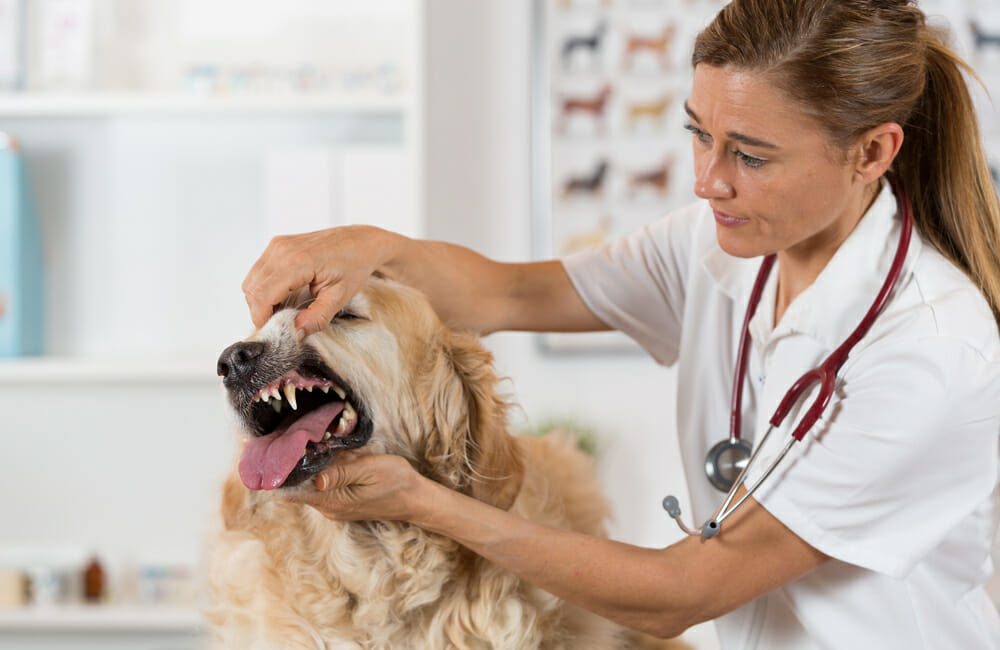Case #1 – Ben (8-Year-Old Retriever Cross Neutered Male):
Owner: “My dog’s not eating. I think he has a stomach ache.”
Let’s look at Ben. His owner thought what any owner would think, my dog has a stomach issue. What Ben’s owner didn’t know, is that his teeth were heavily coated in tartar (his mouth had a lot of bacteria floating around making him not feel well). The recommendation was for him to have a dental clean and polish.
Owner: “I don’t know; that’s a lot of money. I think I’ll leave it for now and do teeth brushing at home.”
What people don’t know, is that there are many ways to help with the cost of dentals, as yes, they are expensive. One option to aid in financial expenses is credit for veterinary care. One we use often is Petcard. Petcard can be compared to a visa card for your pet. Another method is pet insurance. Most will cover up to 80% of the cost of treatments. If you have a good repour with your clinic, sometimes they will allow you to have an account that you can make monthly payments.
Also, dental home care is an excellent idea. However, it is only a preventative but not take the tartar away. Therefore, this would not change the fact that Ben had stopped eating. Just a few days after Ben’s dental, he was back to eating!
Case #2 – Beauty (15-year-old Shih Tzu spayed female):
Owner: “All my dog is doing is sleeping which is very unlike her.”
Beauty came for her appointment and had a fever. The veterinarian performed her exam and observed that her mouth was severely infected. Smaller breed dogs generally end up having dental issues unfortunately due to their small mouths being too crowded with their teeth. We can not express enough how preventative care, like teeth brushing, is critical. After running some blood work, it was shown that Beauty had a severe infection that had to be dealt with.
Owner: “We are not ready to say good-bye, but she’s old, will she do well under anesthetic? What do we do?”
We hear this concern quite often with our senior patients, and it is a factor that we take into consideration when drafting our plan. What we like to focus on is AGE is not a DISEASE. There is data to show a dental intervention can improve a senior pets quality of life and possibly longevity. Since the blood work only showed infection, the owners opted to go ahead with dental surgery.
After multiple teeth were taken out and post-op antibiotics, Beauty was back to normal shortly after surgery: she was no longer lethargic. Beauty was bouncing around, eating and drinking well. Beauty today is now 18 yrs old and though she’s slowing down, still has a great quality of life.
These two cases are great examples of why we recommend annual exams. It allows your veterinarian to detect problems early on and potentially make treatment less intense. A preventative plan can also be created in an attempt to avoid painful oral surgery. Working in a veterinary practice, these are the things veterinarians hear quite often. What the owner might think the problem is, might not be the actual problem. It could be something different. It’s important to watch for signs of lethargy, refusing food, excessive drooling, or even panting more than usual. There’s also the possibility that you may see no behavioural signs.
*Please note: These patients are fictional although the cases themselves happen frequently.
Written by: Amy Morgan, ACA




